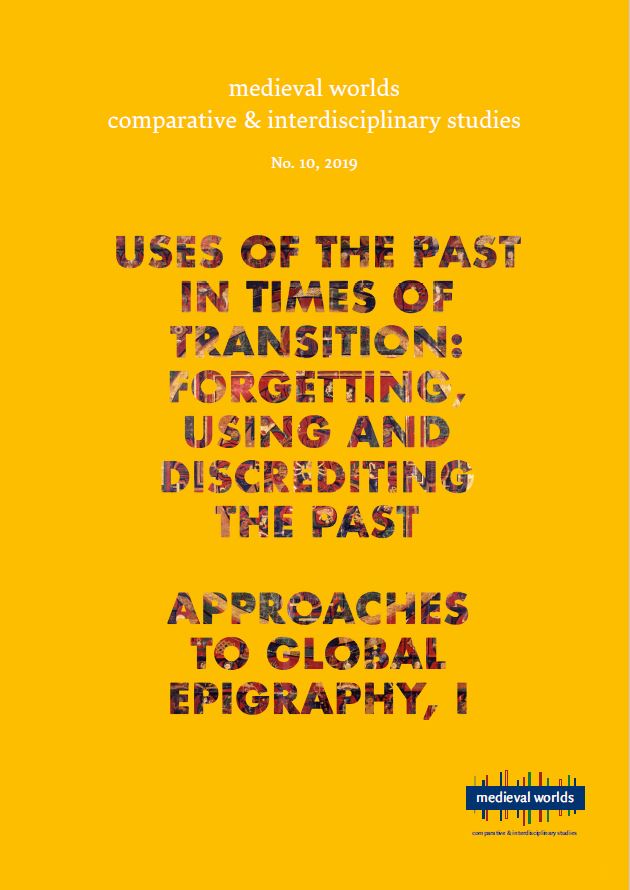Stefan Esders
S. 17 - 45
doi:
10.1553/medievalworlds_no10_2019s17
Verlag der Österreichischen Akademie der Wissenschaften
doi:
10.1553/medievalworlds_no10_2019s17
Abstract:
Taking the Alpine region of Churraetia as a case study, this paper investigates processes of fiscal delegation, their preconditions, their legal construction, and their consequences. As Churraetia maintained many features of Roman provincial administration and statehood well into the Carolingian period, the article’s first part traces how fiscal revenues and rights came to be delegated to the episcopal church of Chur via royal privilege from the mid-9th century until 960. The delegation of fiscal rights usually happened in special situations when kings and grantees agreed on a closer cooperation in the future. In the course of this process, which in the case of Churraetia eventually turned a former Roman province into an ecclesiastical principality, the episcopal church became a governance actor that would play a crucial rule in exercising public functions such as tax collection, jurisdiction and military recruitment. Ecclesiastical property (often deriving from royal munificence) and fiscal income became indispensable means for performing these functions. The article’s second part focuses on the situation of 912 when the newly elected East Frankish king Conrad I, the first ruler of non-Carolingian stock, conferred two special privileges on the episcopal church of Chur: Conrad’s grant of the right to conduct inquisition procedure by compulsory witness in order to protect ecclesiastical property effectively meant that procedural law typical for the »public sphere« now came into the hands of the bishop of Chur. Conrad’s second stipulation, that the thirty-year period of proscription should not to be applied against the interest of the bishop of Chur, has to be seen against the background of legal pluralism in this region, in which several legal traditions were in conflict: while Roman law allowed a slave to rid himself of his master after thirty years, Aleman law forbade this, just as the idea that ecclesiastical property was regarded as inalienable spoke against the application of the thirty-years rule to the detriment of the church. Responding to ecclesiastical networks supporting his rule, Conrad thus had the Roman legal rule of prescription branded as a »bad custom« (mala consuetudo). As is finally argued in a more general perspective, in historical situations of political transition legal pluralism and legal change could lead to a new qualification of what had formerly been seen in more positive terms as »custom«.
law; custom; fiscal rights; inquisition procedure; prescription; slavery and serfdom; delegation; Churraetia; polyptychs; royal charters
Published Online:
2019/11/28 19:50:40
Object Identifier:
0xc1aa5576 0x003b0d6a
Rights:All rights reserved.For questions regarding copyright and copies please contact us by email.
medieval worlds provides a forum for comparative, interdisciplinary and transcultural studies of the Middle Ages. Its aim is to overcome disciplinary boundaries, regional limits and national research traditions in Medieval Studies, to open up new spaces for discussion, and to help developing global perspectives. We focus on the period from c. 400 to 1500 CE but do not stick to rigid periodization.
medieval worlds is open to submissions of broadly comparative studies and matters of global interest, whether in single articles, companion papers, smaller clusters, or special issues on a subject of global/comparative history. We particularly invite studies of wide-ranging connectivity or comparison between different world regions.
Apart from research articles, medieval worlds publishes ongoing debates and project and conference reports on comparative medieval research.
Table of Contents
Uses of the Past in Times of Transition:
Forgetting, Using and Discrediting the Past
Introduction. Making the Past in Late and Post-Carolingian Historiography
Maximilian Diesenberger
The Church as a Governance Actor in a Period of Post-Imperial Transition:
Delegation of Fiscal Rights and Legal Change in 10th-century Churraetia
Stefan Esders
Understanding the Church’s Past:
Usuard’s Martyrology in Tenth-and Eleventh-century England
Sarah Hamilton
Creating an »Orthodox« Past:
Georgian Hagiography and the Construction of a Denominational Identity
Emma Loosley Leeming
Using the Carolingian Past in a Society of Transformation:
The Case of Early Medieval Septimania/Catalonia in the Long Tenth Century (900-1050)
Matthias M. Tischler
Uses of the Past in Early Medieval Iberia (Eighth-Tenth Centuries)
Jorge Elices Ocón and Eduardo Manzano Moreno
Royal Marriage, Frankish History and Dynastic Crisis in Regino of Prüm’s Chronicle
Eric J. Goldberg and Simon MacLean
Negotiating the Roman Past in Later Tenth-century Armenia
Tim Greenwood
Aitire, 人質, тали, όμηρος, رهن , obses: Hostages, Political Instability,
and the Writing of History c. 900-c. 1050 CE
Alice Hicklin
Approaches to Global Epigraphy, I
Global Epigraphy: The Scholarship on Inscriptions of Eurasia
from Antiquity to the Early Modern Period
Andreas Rhoby, Veronika Scheibelreiter-Gail and Andreas Zajic
Archaeological Contexts of Inscriptions in the Private Sphere:
The Mosaic Inscriptions of a villa rustica in Skala/Cephalonia
Elisabeth Rathmayr and Veronika Scheibelreiter-Gail
Inscriptions in Areas of Historical Western Tibet (mNga’ ris skor gsum) in their Contexts:
A Brief Overview with Selected Examples
Christian Jahoda
Byzantine Connections
History and Exegesis in the Itinerarium of Bernard the Monk (c. 867)
Daniel Reynolds




 Home
Home Print
Print
 References
References
 Share
Share
